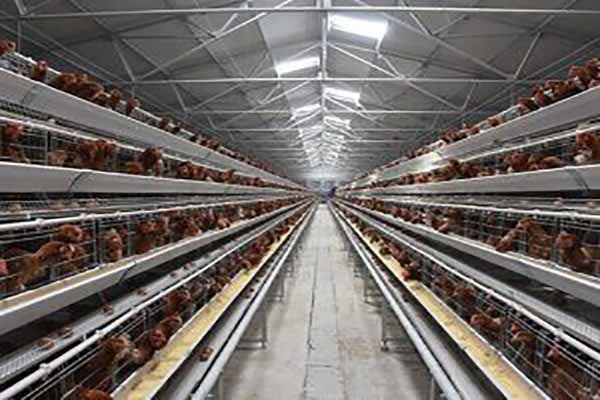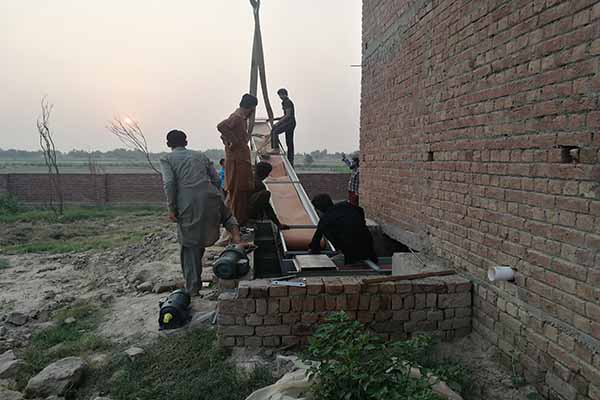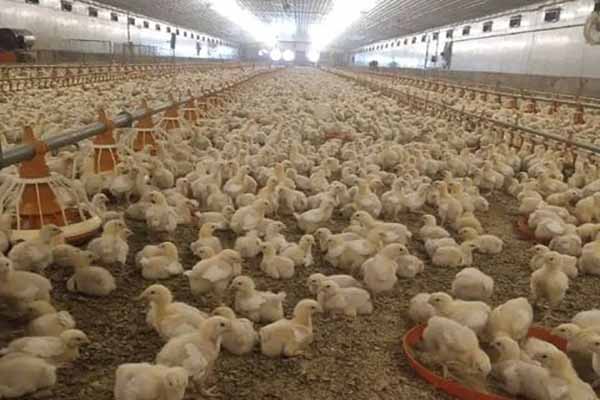Free Range Chicken Farming in Kenya: A Comprehensive Guide
Time : 2025-05-12
Are you looking to delve into the world of free-range chicken farming in Kenya? If so, you’ve come to the right place! Free-range chicken farming is gaining popularity in Kenya as more people seek healthier, ethical, and sustainable farming practices. In this article, we’ll explore what free-range chicken farming entails, its benefits, the challenges you might face, and how to get started. Let’s dive in!
What is Free-Range Chicken Farming?
Free-range chicken farming is a method of raising chickens that allows them to roam freely outside of enclosed coops. Unlike factory farms, free-range chickens have access to the outdoors, which means they can forage for food, exercise, and exhibit natural behaviors. This approach to farming is not only beneficial for the chickens but also for the environment and the consumers.
Benefits of Free-Range Chicken Farming in Kenya
1. Healthier Chicken Meat
Chickens raised in free-range conditions have a healthier diet, which results in leaner, more nutritious meat. Their exposure to fresh air and exercise contributes to better muscle development and a more natural flavor profile.
2. Ethical Farming Practices
Free-range chicken farming is a more ethical approach to farming. It ensures that chickens live a better quality of life, with less stress and more freedom to express their natural behaviors.
3. Environmental Benefits
Free-range farming reduces the environmental impact of chicken production. It eliminates the need for antibiotics and synthetic feed additives, which can harm the soil and water resources.
4. Market Demand
Consumers in Kenya are increasingly seeking out healthier, ethically produced food. Free-range chicken products can fetch a premium price, making it a potentially profitable venture.
Challenges of Free-Range Chicken Farming in Kenya
1. Predators
In Kenya, predators such as eagles, snakes, and wild animals can be a significant threat to free-range chickens. This requires careful management and protective measures to ensure the safety of the flock.
2. Disease Outbreaks
Free-range chickens are more susceptible to diseases due to their exposure to the environment. Regular health checks and vaccinations are essential to keep the flock healthy.
3. Food Availability
Free-range chickens depend on natural foraging for part of their diet. In regions with limited vegetation, it can be challenging to provide adequate food resources for the flock.
4. Economic Investment
Starting a free-range chicken farm requires a significant investment in terms of land, infrastructure, and initial stock. It’s important to carefully plan and budget to ensure the venture’s success.

How to Get Started in Free-Range Chicken Farming in Kenya
1. Research and Planning
Become familiar with the local market demand for free-range chicken products and the regulatory requirements. Choose a suitable location for your farm, considering factors such as proximity to markets, water sources, and land availability.
2. Infrastructure and Equipment
Construct coops that provide protection from predators while allowing chickens to access the outdoors. Ensure you have adequate fencing and secure entry points. Purchase the necessary equipment, such as feeders, waterers, and nesting boxes.
and secure entry points. Purchase the necessary equipment, such as feeders, waterers, and nesting boxes.
3. Stocking Your Farm
Choose high-quality chicken breeds that are well-suited to free-range environments. Consider the age, sex, and health of the chicks when purchasing your initial stock.
4. Nutrition and Health Management
Develop a balanced diet that meets the nutritional needs of your chickens. Regularly monitor their health and provide vaccinations to prevent diseas e outbreaks.
e outbreaks.
5. Marketing Your Products
Identify your target market and develop a marketing strategy. Consider selling directly to consumers, working with local restaurants, or distributing through retail stores.
Conclusion
Free-range chicken farming in Kenya presents a promising opportunity for sustainable and profitable farming. By understanding the benefits, challenges, and steps to get started, you can embark on a journey that not only benefits your farm but also contributes to a healthier and more sustainable food system.











